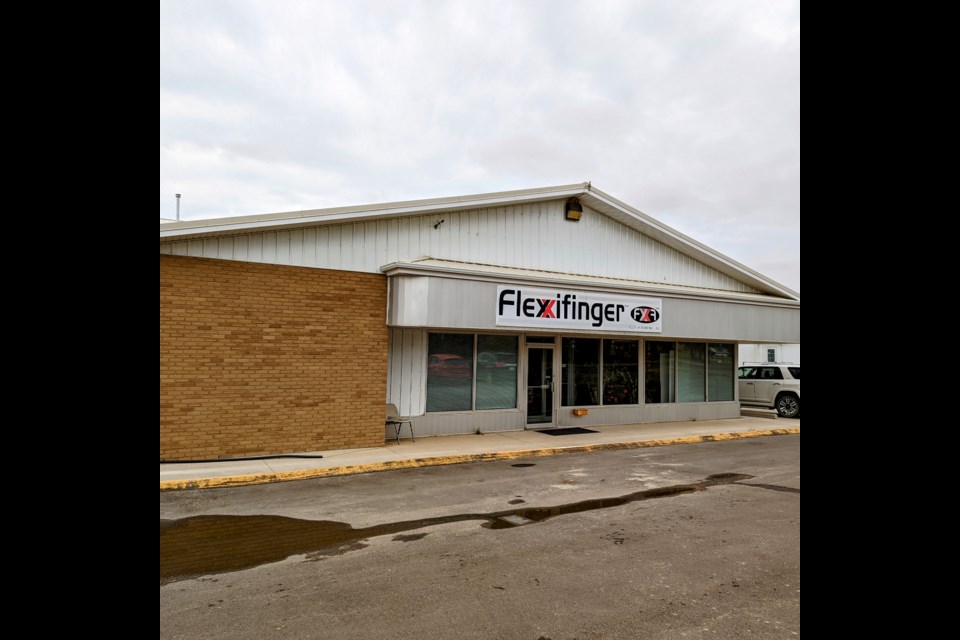ASSINIBOIA — Dave Dietrich is a generational Saskatchewan farmer who turned a struggle to pick up his damaged pulse crops into an international business supplying farmers globally with the means to recover their damaged crops, turning losses into gains.
“It really started because of my own farm,” Dietrich explained to MooseJawToday.com. “I had seeded milestone lentils … milestone lentils are small, but very good yielders. I figured I had about 40 bushels to the acre.”
However, when Dietrich drove out to harvest his crop, his combine came up mostly empty.
“When a heavy stand of lentils or peas develops and you get rains in a timely fashion, the pods become heavier. And if you get a shower of rain or even fog or heavy dews, that adds to the weight of the plant. Pretty soon it gets tired and it starts falling over …
“Milestone lentils probably grow about nine inches tall, that’s their normal height — nine, maybe ten inches tall. But as they fall over, it’s more like trying to pick up a newspaper or a piece of cardboard lying close to the ground.”
And that’s how Dietrich started, because he couldn’t find crop lifters that went close enough to the ground to recover his flattened pulse crops.
Time was against him and nothing was working. He tried various brands and attempted to adjust the fingers lower to the ground, but eventually he realized it just wouldn’t work.
“So, I picked up and went home to dinner. And I started working to design something that would maybe work to lift this crop and feed it over the knives.”
Dietrich laid out the following criteria for his custom crop-lifting design:
- It needed to be easily adjustable
- It needed to be quick to take off or put on the header
- It needed to be easily repairable
- It needed to be gentle on the crop to reduce shatter loss
“I didn’t get it all right that first year, but after a while I got it to the point where I combined 38 bushels to the acre off of that field,” Dietrich said. “And I was really, well, really tickled pink by that. And I got going and I’m watching this crop come in now and fall in the hopper and I thought, you know, maybe I’m not the only one that needs something like this.”
He continued to tinker and bought manufacturing equipment for his shop, where he would spend his winters testing and improving his ideas one at a time. Eventually, he contacted a law firm about patenting his work.
The company that resulted, which Dietrich called Flexxifinger, has remained in Assiniboia. Moving to a large urban centre might make finding parts and employees easier, but he doesn’t want to leave his farm and contribute to the decline of the rural economy in the province.
Flexxifinger employs 12 people, although that number can rise depending on farming conditions year-to-year. The shop integrates traditional ingenuity and craftsmanship with the latest tech — three laser-guided Swedish welding robots that produce precise, fast, safe welds.
“We’ve sold crop lifters in 20 or 30 countries around the world,” Dietrich said. “We’ve got about 600 to 650 dealers that sell our products.”
Dietrich’s greatest enjoyment in his work comes from the stories of folks like him who use Flexxifinger products — farmers who might otherwise have lost a huge amount of their yield. He travels to trade shows and chats with whoever he can, and is always ready to take a phone call with his customers.
“Three or four years ago now,” Dietrich recalls, his face lighting up, “one of our dealers phoned up from northern Alberta, and he asked, ‘is Dave there?’ So I got on the phone with him and he says, ‘I just wanted to tell you how good a service you folks are giving.’”
The dealer, Dietrich explained, had been selling Flexxifinger products for about three or four years. They sold about five sets of crop lifters a year — not a lot, but steady.
But this year, the dealer told him, all the crops went down. The harvest was lying on the ground and couldn’t be recovered without lifters.
The dealer sold 1,800 sets of Flexxifinger crop lifters that season.
Flexxifinger is a company based on inventing and developing. They continue to innovate. They love hearing suggestions from their clients on how to improve their designs. Dietrich has bought patents for other inventions, such as a heavy-duty skid-steer-mounted rock picker, and improved those designs further.
Get in touch with the company at flexxifinger.com/Farm-Machinery/Contact-Us to learn more about their products and watch video testimonials from farmers all over the world.



